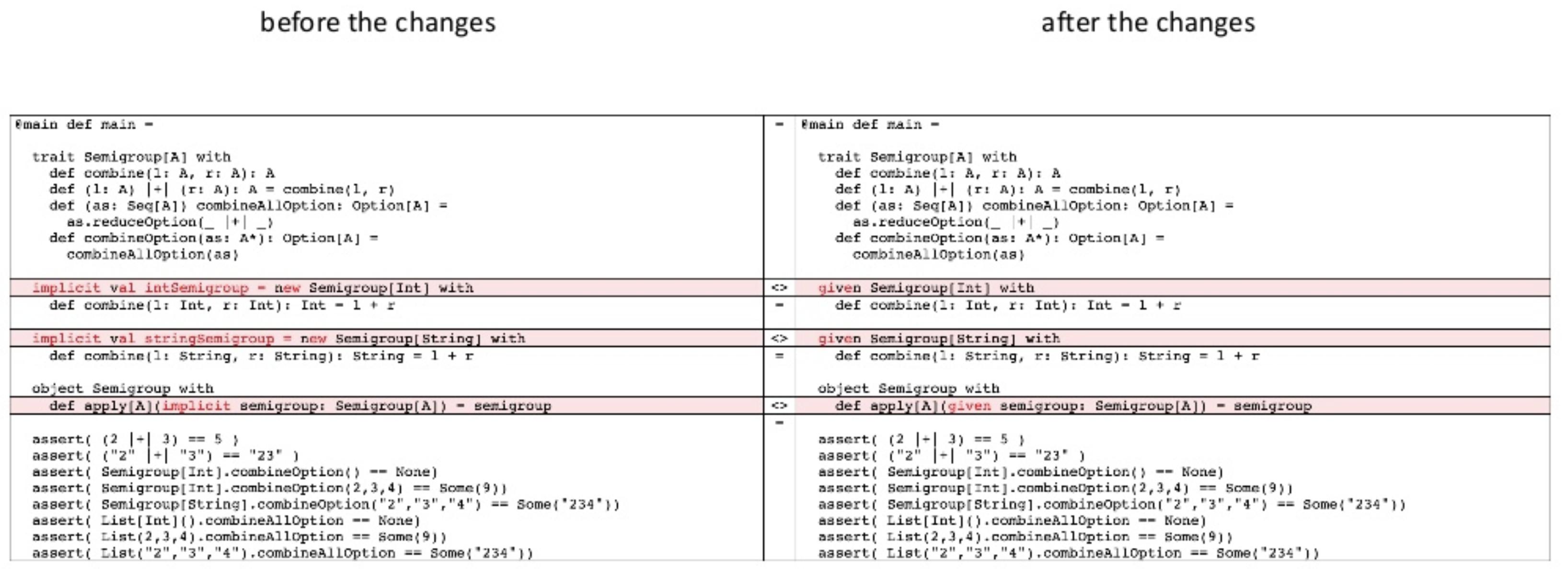I was going through Scala 3 documentation. They have introduced given keyword which is considered as the alternative of Scala 2 implicit.
The code is here
trait Ord[T] {
def compare(x: T, y: T): Int
def (x: T) < (y: T) = compare(x, y) < 0
def (x: T) > (y: T) = compare(x, y) > 0
}
given intOrd: Ord[Int] {
def compare(x: Int, y: Int) =
if (x < y) -1 else if (x > y) +1 else 0
}
given listOrd[T]: (ord: Ord[T]) => Ord[List[T]] {
def compare(xs: List[T], ys: List[T]): Int = (xs, ys) match {
case (Nil, Nil) => 0
case (Nil, _) => -1
case (_, Nil) => +1
case (x :: xs1, y :: ys1) =>
val fst = ord.compare(x, y)
if (fst != 0) fst else compare(xs1, ys1)
}
}
I am very confused here that what is happening here in the bellow code:
given intOrd: Ord[Int] {
def compare(x: Int, y: Int) =
if (x < y) -1 else if (x > y) +1 else 0
}
Is it instantiating Ord[T] within given keyword or something else?

